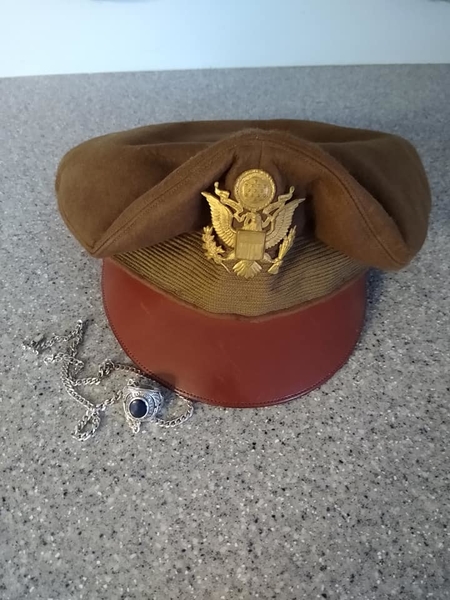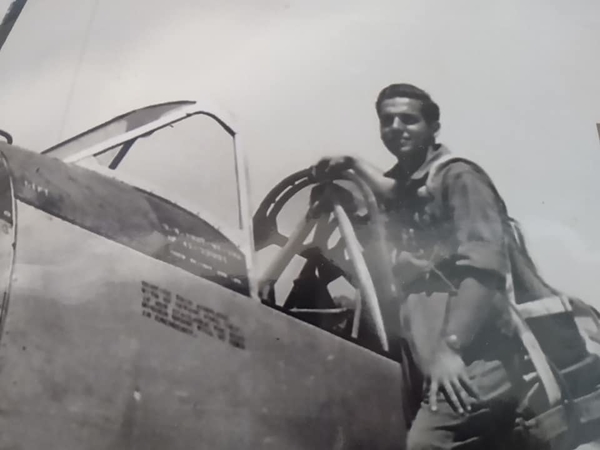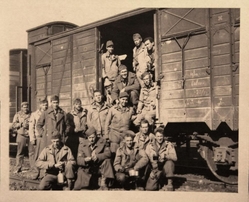Just saw this, and first of all, thank you for sharing this, it meant a lot to me personally. I am amazed at his recall and the way he wrote this, he obviously was a very intelligent person. The one thing that almost every WWII vet I have ever met or read about (Stud's Terkel's book, "The Good War", is a classic, and it is a theme repeated there) is that the people who fought it saw it as something necessary, but also thought it was a total waste of lives and resources. You read about Europe or the Pacific and the one thing you realize is how brutal it really was and how a bunch of young kids were able to do what they did (I think about the way my friends and I drove at 18, and marvel at the kids flying planes like a P38 or a Mustang the way they did).
It is personal because my dad was a WWII vet, he was part of a tank killer battalion attached to the Third Army (initially they had a towed gun, after that the M36 Jackson tank destroyer, basically a stripped down Sherman with a 90MM gun that was quicker than a standard tank and could kill a tank at large range). Like your great uncle, my dad when he talked about it never talked about the horrors that much,he talked about training and of course the funny stories, talked about having a 72 hour pass in Paris and spent the whole time walking around, raiding a castle on the Rhine River and hitting the wine cellar, things like that (some of which I can't tell here, violate TOS for being civilized *lol*). He landed I believe about a month after D day and fought all the way until the end of the war (he saw both concentration camps and the camps for Russian POWS, he said they only differed in the way they killed people, not the end result).
He told story about troop trains, like they had the lowest priority around, so when they went to Texas from NJ it took well over a week. His story about troop ships (which someone in Terkel's book confirmed) was the chow was lousy, that officers were dining well and the men, well,not so much (the guy in Terkel's book said the same thing, fish heads for breakfast often).
I never even knew until I was well into adulthood that my dad had won the silver star, and that he had had a million dollar wound, ducked the hospital and went back to his unit, and later on was wounded more severely. He and another guy were manning a tank in Luxembourg in Jan, 45, their M36 took a hit and it knocked out the engine, they abandoned it bc they thought it might blow up, then when it didn't my dad got anther guy to go back, and according to the citation, knocked out several enemy tanks that threatened a retreat underway. The reason for the citation was simple, the M36 was lightly armored, it depended on speed and evasiveness, without an engine it was a sitting duck.
The one thing he said time and again that there was no glory in war or battle, that they were a bunch of young kids who were just trying to stay alive. He always said that the guys he saw glorifying war were the guys who were behind the lines, not people who had seen and yeah, smelled it (he saw Saving Private Ryan, which was rare for him, he generally only watched WWII comedy movies, said the movie came close but they couldn't reproduce the smell).
One of the things he said was that one thing that might have let the guys do what they did was the units had kids but also had older guys. He talked about a guy in his unit from Boston, an older guy who was a buddy of the infamous Mayor Curley there, who he said kind of acted as a surrogate father.
Sorry if I went on, but wanted to share this, and thanks to the OP for sharing that story. One of the sad things with WWII is a lot of the records were lost thanks to a fire in a St. Louis archive in the 1970's, I was able to get some of my dad's records (you could see in the copies where the original was burned) and a copy of his medals, but I always wanted to try and find his fitness report or whatever they called it, to see if my mom was right and he was kind of the archetype of the person always getting in trouble for being a smart mouth *lol*-that I think may have been lost, sadly
And oh, yeah, he loved Lionel trains
























